The Canvas of Tomorrow: Where We’re Taking Our Customer Journey Builder in 2020 And Beyond
Published on January 27, 2020/Last edited on January 27, 2020/4 min read
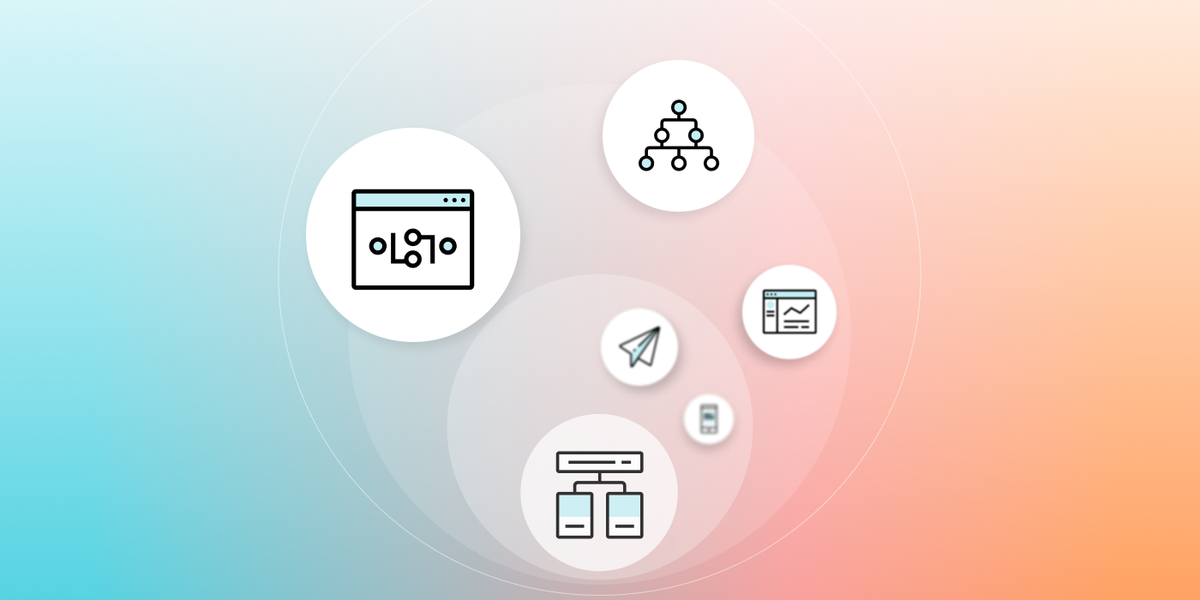
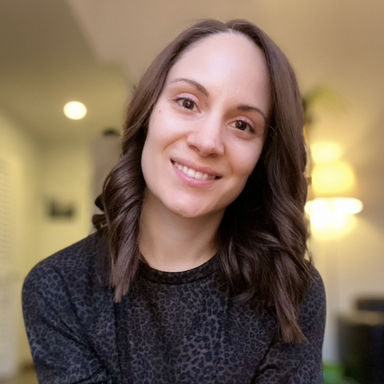
Ashley Christiano
Principal Customer Marketing Manager, Global SMB at BrazeThis winter ushers in some new components aimed at unlocking additional use cases for marketers while also making the experience more intuitive along the way. But we’re not done yet! Because as marketing continues to evolve, so does Canvas.
Braze has always focused on enabling marketers to create targeted, responsive, relevant experiences that provide continuous value to their users. And in July 2016, we launched Canvas to further that mission! This simple, visual journey builder tool allows marketers to build, test, and optimize messaging flows on multiple channels, multiple variants, and from multiple triggers.
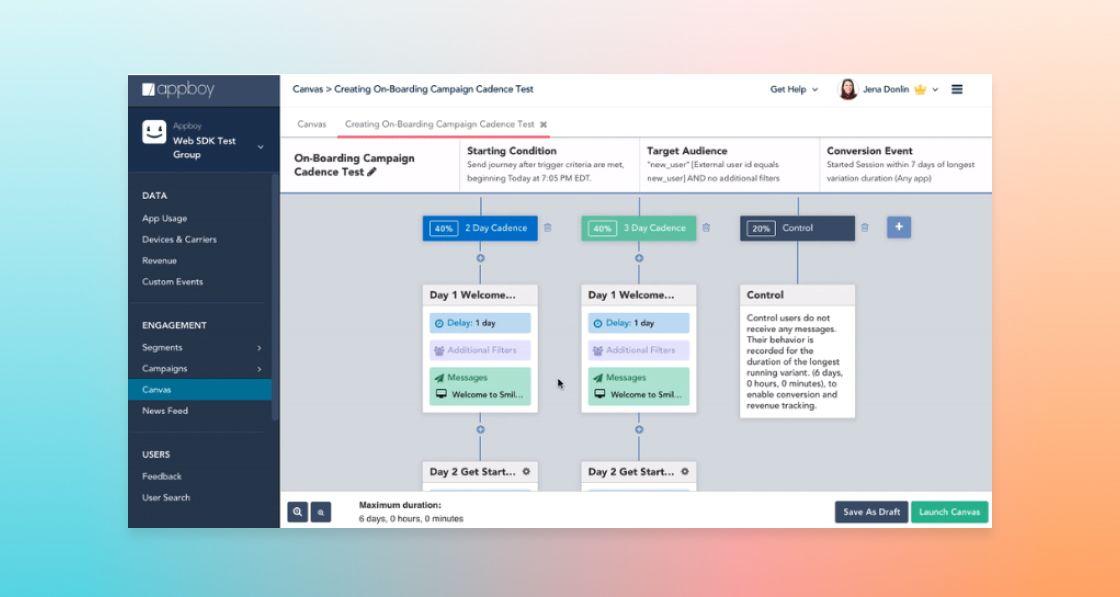
Since then, we’ve introduced new features to make the Canvas experience even better, like Intelligent Selection, our intelligence-backed multi-variate testing tool, or the introduction of new channels to Canvas, like In-App Messages and SMS.
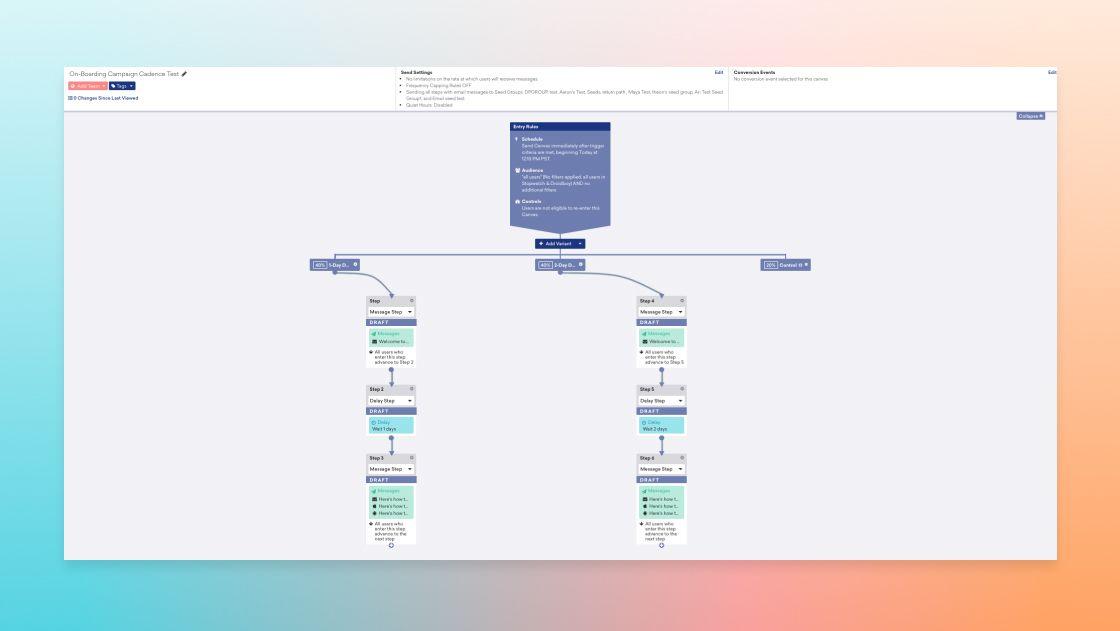
As Braze Canvas evolved, so did the ways marketers were using it. In 2019, marketers deployed nearly 37B messages. The average Canvas today has 5 steps in a flow that sends a series of messages over the course of about 11 days. Customers like Rakuten, MINDBODY and Ibotta use Canvas to engage audiences like never before, creating cross-channel journeys that connect with their users at a deeper level.
And to make building a simple yet powerful Canvas even easier and faster, we introduced Canvas components this January. Marketers can now mix and match new components—Decision Splits, Delay Steps, Message Steps—to build customer journeys the whole team can understand and create for themselves.
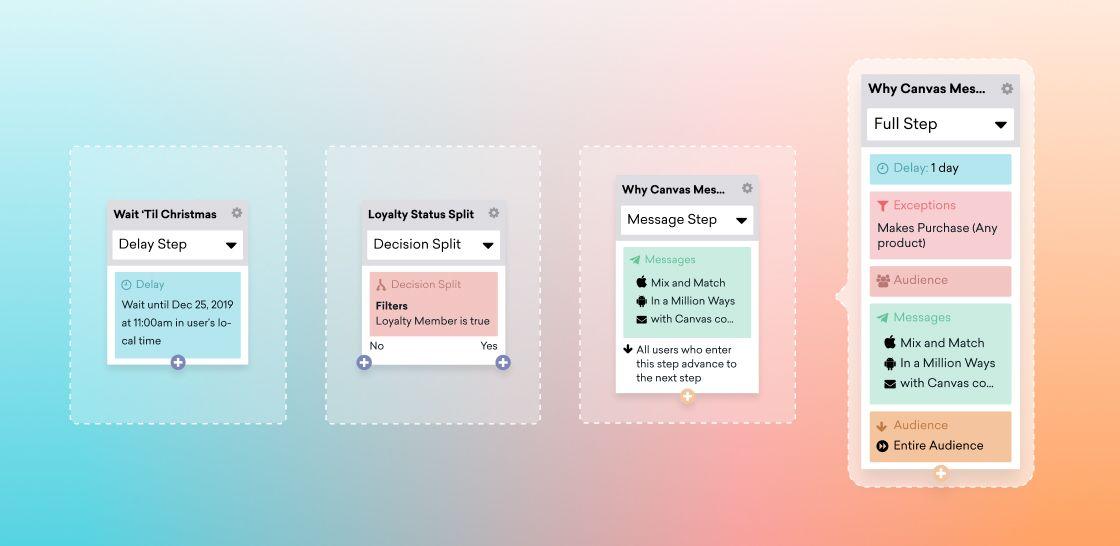
- Decision Split: With easy Yes/No logic, create alternate paths in your journeys based on customer behavior or profile attributes. This is the real meat of a choose-your-own-adventure kind of recipe.
- Delays: Add a simple delay, or even series of delays, to any Canvas before or after you trigger a message or send your entrants through a Decision Split. You can delay for a period of time, or until a specific time and date.
- Messages: Get straight to work creating the best message possible without having to worry about delays or filters as well.
- Full Step: Where the three new components are like short sentences, a Full Step is more like a paragraph. Our original Canvas component lets you include Delays, Exceptions, Audience Filters, Messages, and more, all in one place.
Link these four components together in any order you choose to create both simple and complex journeys for an end result that’s as easy to understand as your favorite recipe.
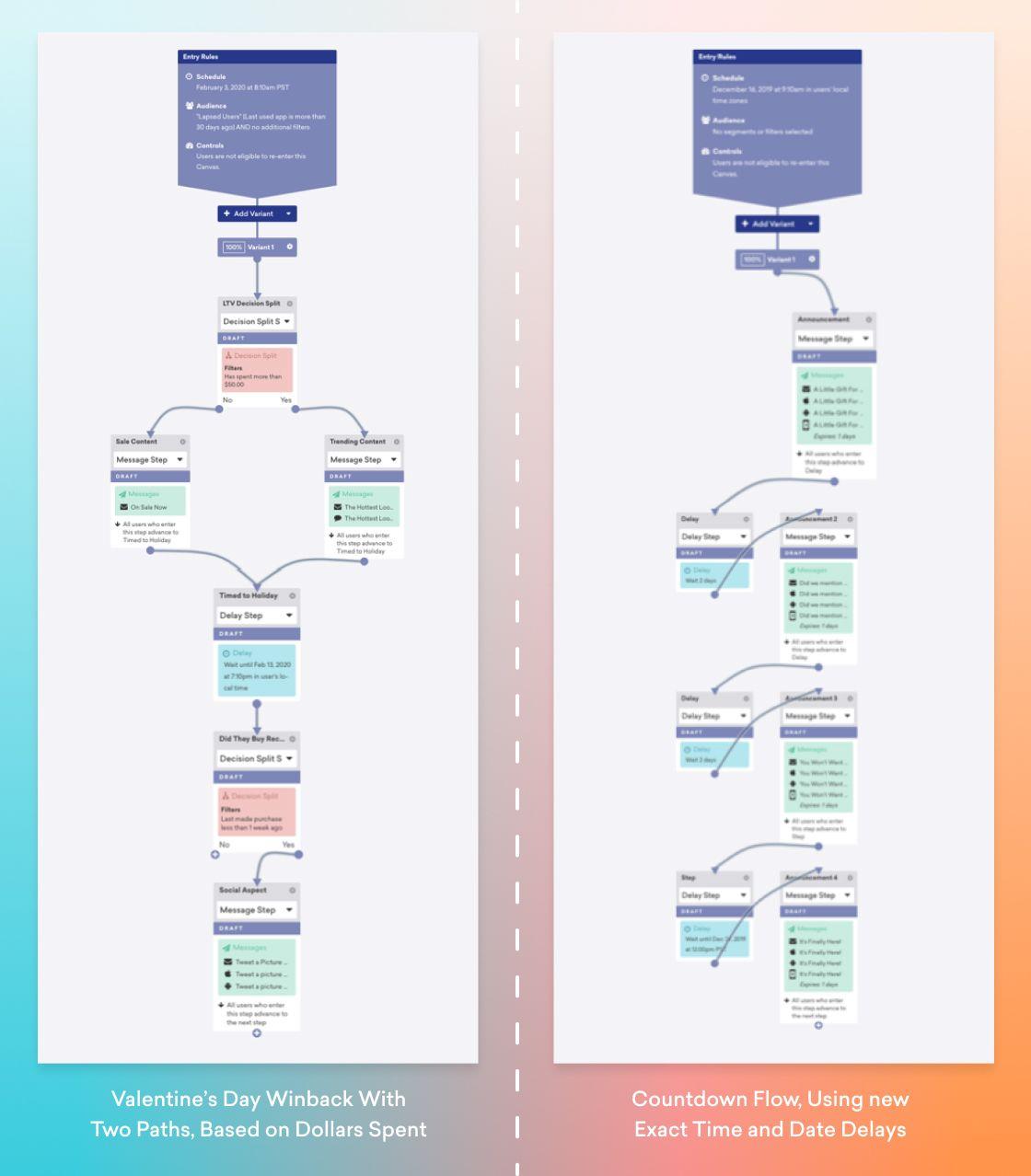
But just like your marketing plans, Canvas continues to evolve dynamically based on relevant insights and feedback. We’re cooking up more ingredients aimed at making your processes simpler, your campaigns more effective, and your testing capabilities even more innovative. In 2020, we’ve got more new components coming your way, including a Dynamic Audience Sharing component that will sync any entrants to this step directly to a Facebook audience. Marketers will be able to expand the reach of every Canvas with personalized, targeted messages on Facebook, and—in the future—other ad partners, too.
And while all of that’s in progress, we’ve got more improvements happening behind the scenes for the next big step in our Canvas journey. A Canvas that has fewer words but just as much visual information. A Canvas that represents the journey a marketer envisioned in their mind, and can then execute with nary a twinge of effort. A Canvas, one might say...of the future. But, like, a not too-distant future.
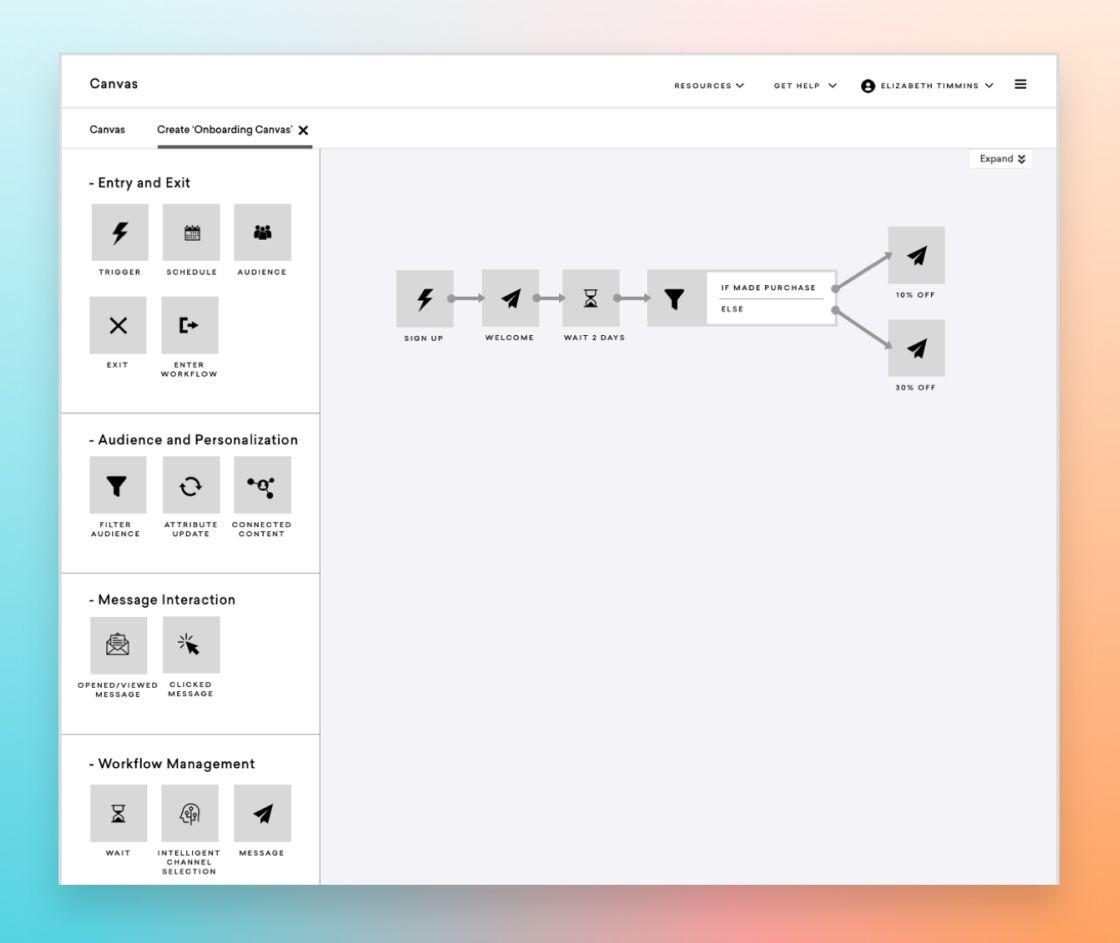
Here’s a sneak peak at the future of Canvas, a future that we’re building today. We’re splitting out the UI for different types of Canvas steps, and creating a more flexible interface. The Canvas of the future will be more flexible, more intuitive, and even easier to use. The experiments that your team have in their heads will come to life more easily, and sophisticated and effective campaigns will be easier to imagine and execute.
Your teams will be able to iterate faster, so that you can learn faster through rapid optimization. And more importantly, we’re building a foundation for the future—one in which intelligence and machine learning will be woven through the fabric of Canvas, and where the reach of Canvas will be expanded to encompass more platforms and channels. This future Canvas will help make that vision a reality.
Build Better Journeys with Braze Canvas
Get additional inspiration for your customer journeys by exploring the five key ingredients you can use in any Canvas recipe, or dive into this Crash Course in Canvas video that will walk you through the value of Canvas in less than three minutes.
Related Tags
Releated Content
View the Blog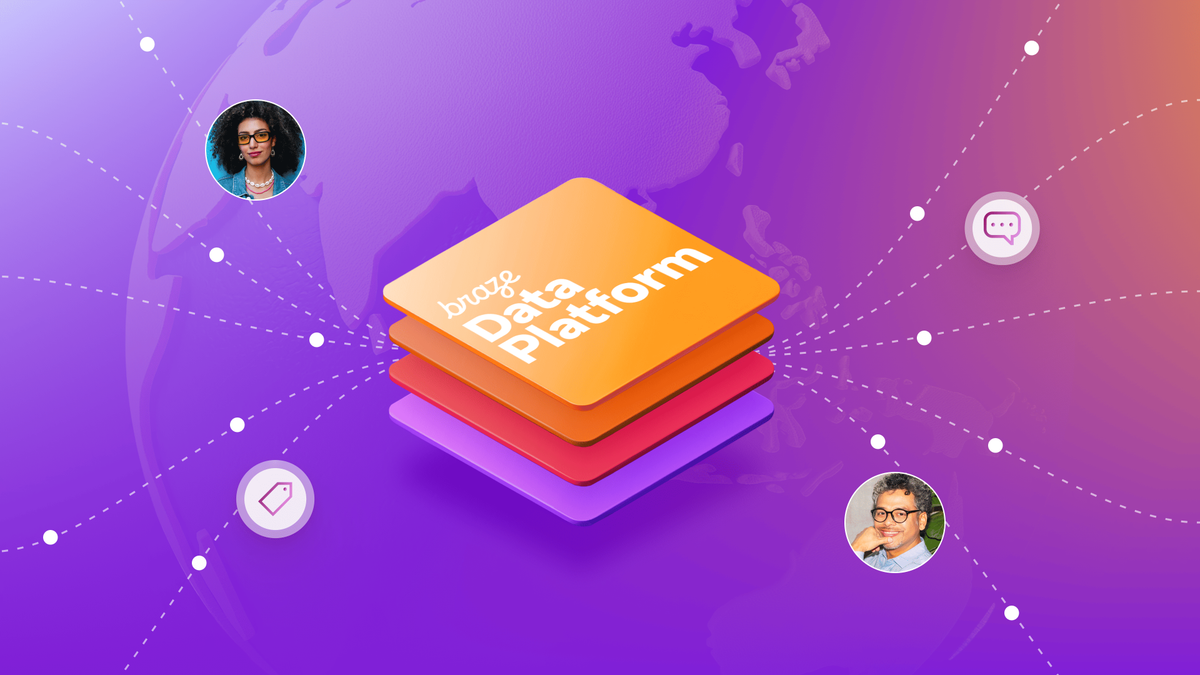
Data agility at a massive scale: How the Braze Data Platform supports customer engagement

Sahiz Kaur
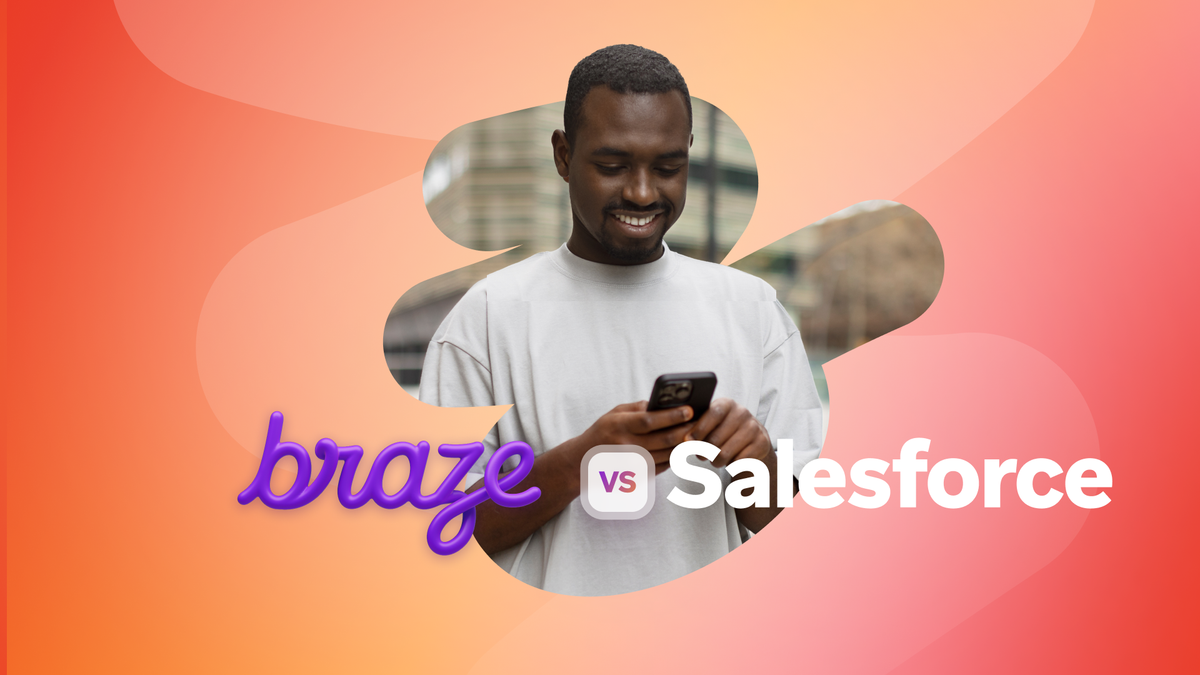
Braze vs Salesforce: Which customer engagement platform is right for your business?

Team Braze
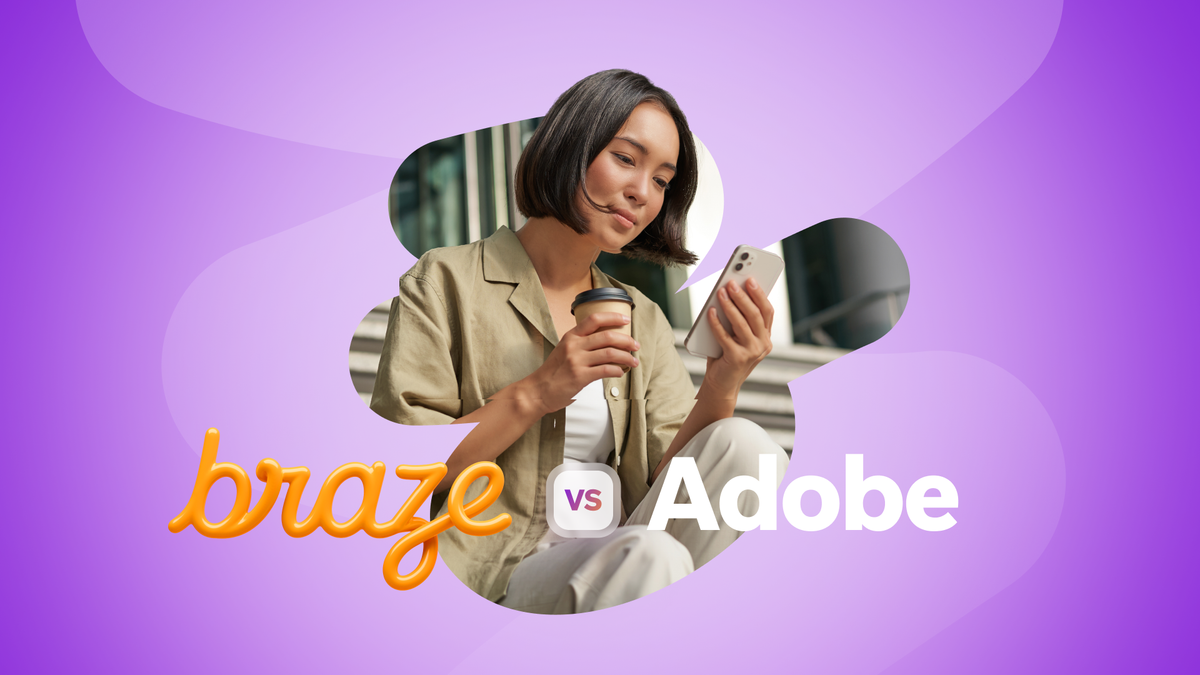
Braze vs Adobe: Which customer engagement platform is right for your brand?
